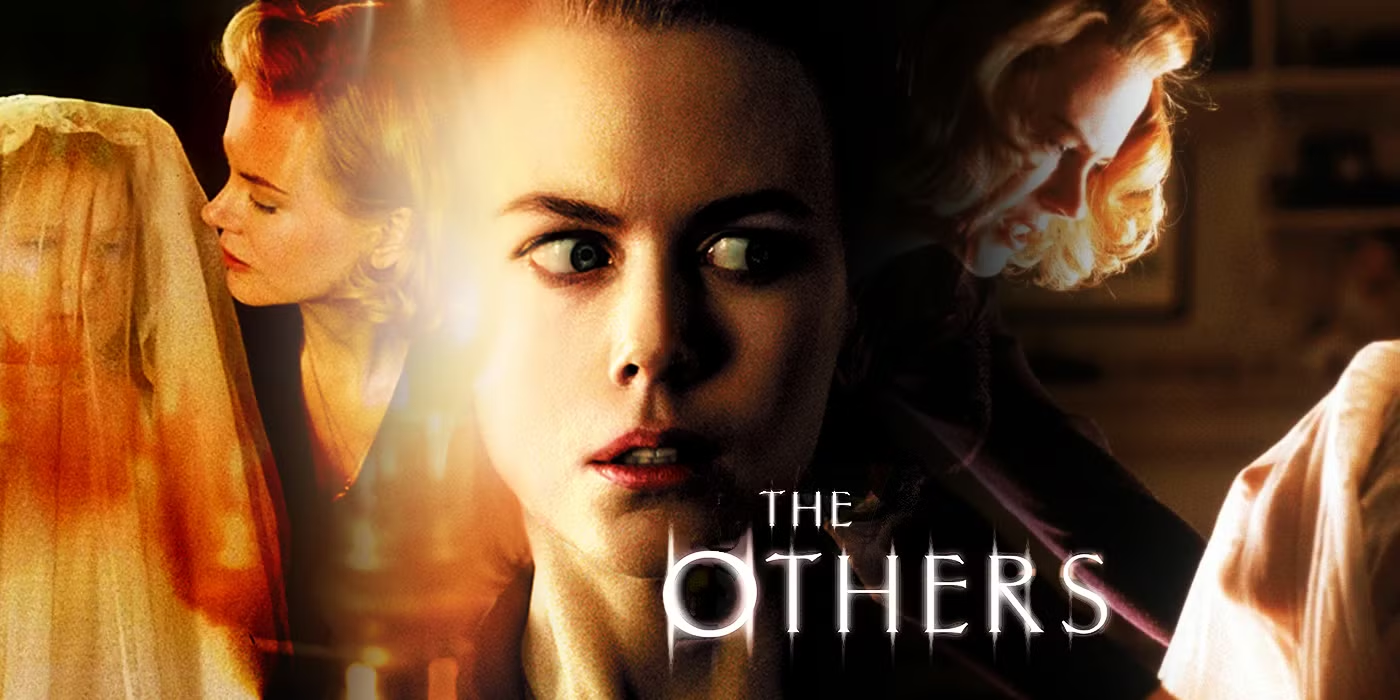🎬 The Grand Budapest Hotel (2014)
- vansinh
- October 26, 2024
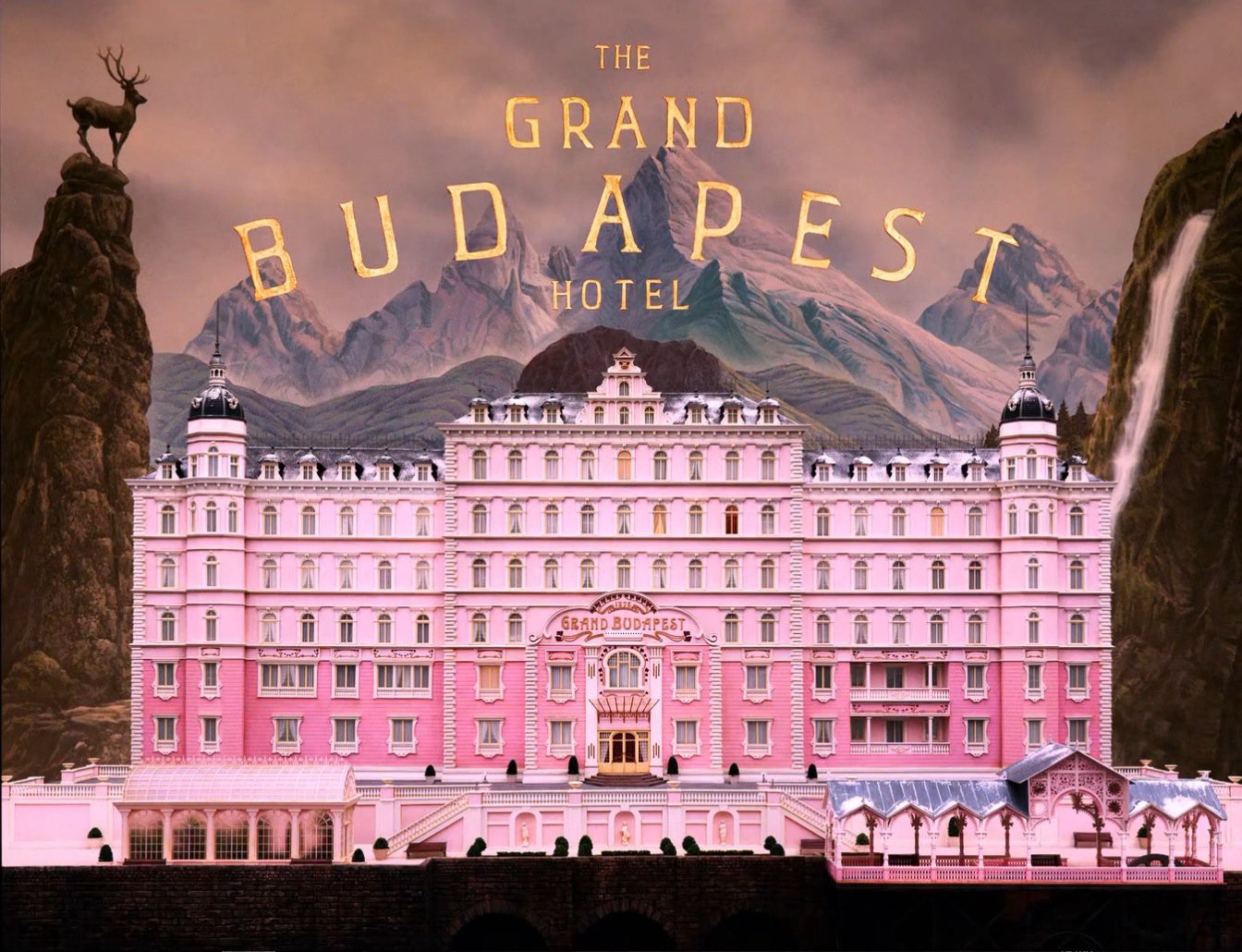
🎬 The Grand Budapest Hotel (2014): A Whimsical Tale of Adventure and Intrigue
The Grand Budapest Hotel, directed by Wes Anderson, is a visually enchanting comedy-drama that transports viewers to the fictional Republic of Zubrowka during the interwar period. The film follows the misadventures of Gustave H. (Ralph Fiennes), the devoted concierge of the illustrious Grand Budapest Hotel, and his loyal protégé, Zero Moustafa (Tony Revolori). Their escapades begin when Gustave is framed for the murder of a wealthy guest, Madame D. (Tilda Swinton), setting off a chain of events filled with intrigue, heists, and a battle for a priceless painting. 🏨🎨
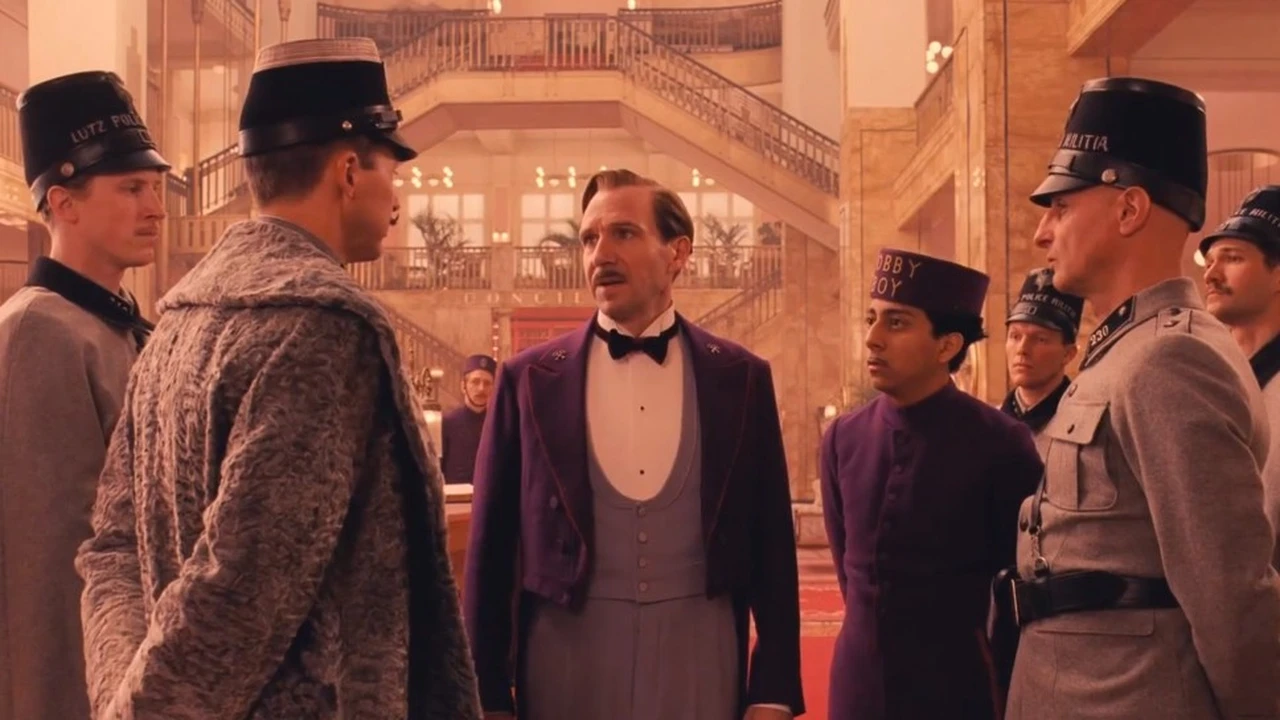
The film’s narrative is intricately woven, featuring a story within a story as it unfolds through Zero’s recollections. Gustave is portrayed as a charming yet eccentric character who embodies the refinement of a bygone era, dedicated to providing the best service to his guests. As he and Zero navigate the treacherous world of art theft and familial betrayal, their relationship evolves, showcasing themes of friendship and loyalty amidst chaos. 🌟👫
Anderson’s signature visual style shines through in The Grand Budapest Hotel, characterized by vibrant colors, symmetrical compositions, and meticulous attention to detail. The whimsical production design, featuring elaborate sets and imaginative costumes, immerses viewers in a fantastical world reminiscent of classic European cinema. The film’s clever use of miniature models and stop-motion animation adds an extra layer of charm, making it a feast for the eyes. 🎥✨
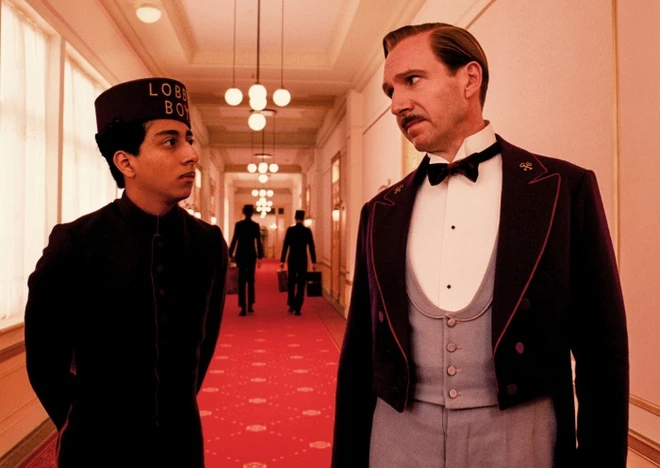 The ensemble cast delivers exceptional performances, with Fiennes stealing the show as the charismatic Gustave. His witty dialogue and impeccable comedic timing elevate the film, while the supporting cast, including Bill Murray, Edward Norton, and Willem Dafoe, add depth and humor to the story. Each character is vividly drawn, contributing to the film’s rich tapestry of eccentric personalities. 🎭👏
The ensemble cast delivers exceptional performances, with Fiennes stealing the show as the charismatic Gustave. His witty dialogue and impeccable comedic timing elevate the film, while the supporting cast, including Bill Murray, Edward Norton, and Willem Dafoe, add depth and humor to the story. Each character is vividly drawn, contributing to the film’s rich tapestry of eccentric personalities. 🎭👏
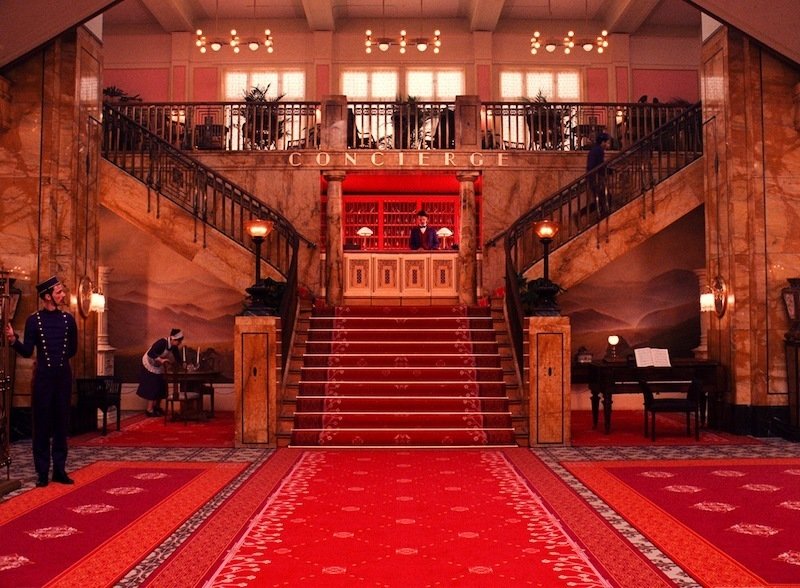 The Grand Budapest Hotel also serves as a reflection on nostalgia, loss, and the passage of time. Through the lens of this whimsical adventure, Anderson explores the themes of memory and the impermanence of beauty, juxtaposed against the backdrop of political turmoil. The film’s bittersweet ending evokes a sense of longing for the elegance of the past while acknowledging the inevitability of change. 🌍⏳
The Grand Budapest Hotel also serves as a reflection on nostalgia, loss, and the passage of time. Through the lens of this whimsical adventure, Anderson explores the themes of memory and the impermanence of beauty, juxtaposed against the backdrop of political turmoil. The film’s bittersweet ending evokes a sense of longing for the elegance of the past while acknowledging the inevitability of change. 🌍⏳
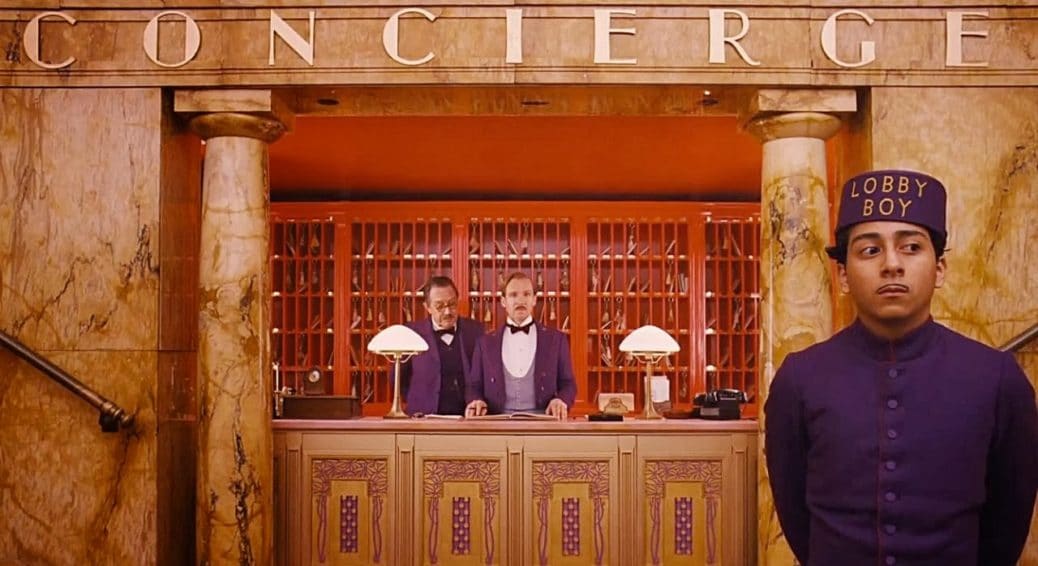
Critically acclaimed and awarded multiple Oscars, including Best Production Design and Best Original Score, The Grand Budapest Hotel stands as a testament to Anderson’s unique storytelling and artistic vision. It invites audiences into a world of humor, heart, and visual splendor, making it a modern classic that resonates with viewers of all ages. 🏆🌈











